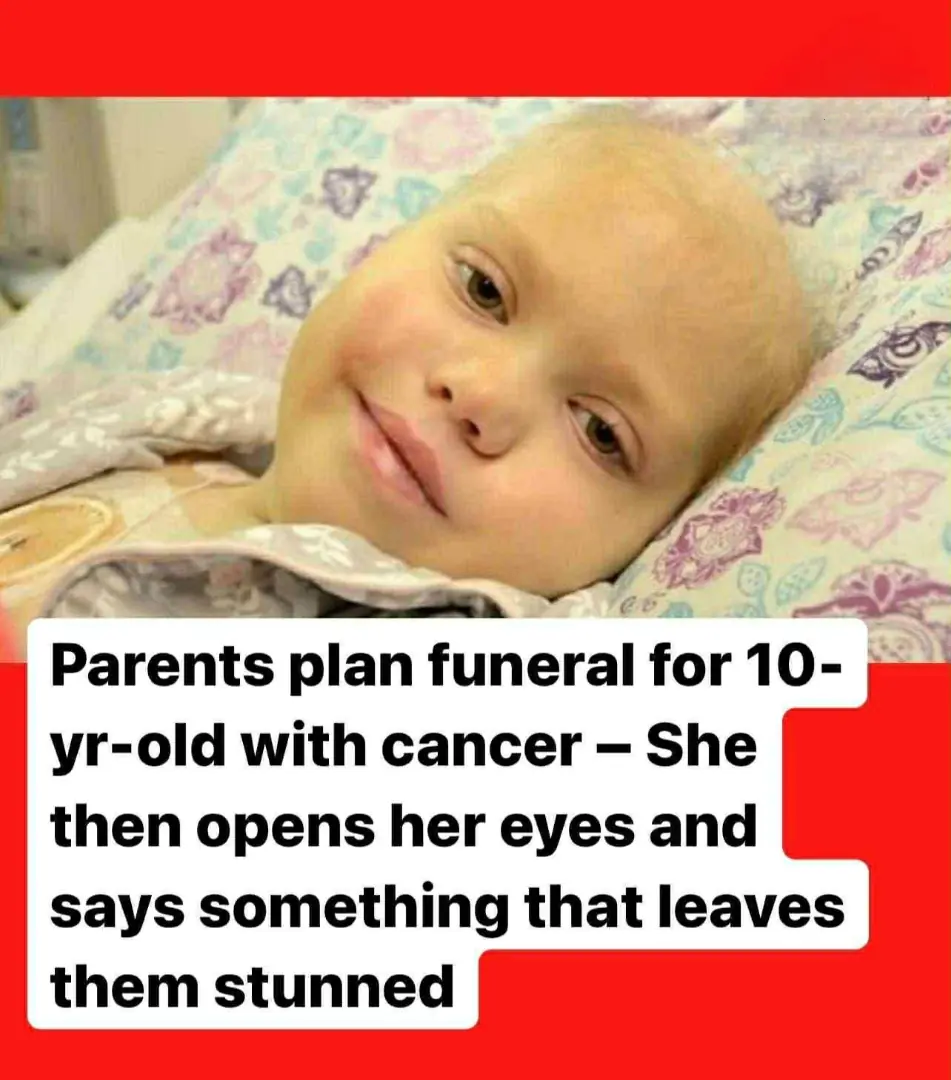
— Where did such a huge bill come from? Honey, are you sure no one is stealing our electricity?” I asked in surprise.
“I swear it wasn’t me!” — Sergey yelled so loudly the fridge trembled. — “I’m telling you, Alinochka, it wasn’t me! Why are you starting all this?”
“So the fridge magically opened itself, devoured my rolls, and shut off all the electricity in the apartment by itself?” — Alina stood in the kitchen, robe wrapped around her, feeling the twitch in her eye intensify. — “My electricity bill was eight thousand rubles! What am I, running an industrial plant or something?”
Sergey raised his hands like a chastised schoolboy.
“Maybe you forgot to switch off the hairdryer or that—what’s it called—your sterilizer?”
“My sterilizer is in the operating room. It’s on the other side of the city,” Alina ground out. — “And if you remember, I go there to work. Not to mine bitcoins like your brother.”
Sergey recoiled, shocked.
“This is unfair…” he mumbled.
“Unfair?” Alina’s voice rose. — “In my own house I don’t understand why the internet speeds rival NASA’s and the storage‑room light never switches off?”
He looked down, silent. But she pressed on.
Alina had never been paranoid. Being a surgeon and working on real human bodies leaves no room for imaginary fears: if someone’s watching you, it’s probably just the cleaning staff waiting for you to free up the lamp. But in the past three months, impossible things had happened.
First — there were footsteps at night, although she was on duty.
Then — things moved or disappeared: her favorite blanket strewn over the living room instead of tucked away.
Then — the bill. A symbolic CT scan of her wallet. Eight thousand rubles.
That evening, her shift ended early—an emergency birth. She returned home, still in her scrubs, and did not even remove her shoes in the hallway. Because she heard a voice in her bedroom.
“Mom, don’t touch her cosmetics! That’s for oily skin—you use different products!”
Alina froze mid‑step.
Carefully, like in a horror film, she approached.
In her bedroom, on her bed, her pillows, sat Nina Petrovna in a robe, rifling through a cosmetic bag. From the bathroom, Viktor emerged in only swim trunks with a towel on his head.
“Alina!” he jumped up. — “Why are you home so early?”
She stood as still as a statue.
“And what are you doing here so early?” she asked slowly. — “Welcome to my house. Or shall I hang a sign: ‘Sergey’s Family—Open 24/7?’”
“Well, we... uh...” Nina Petrovna twisted nervously. — “Sergey said your bills were enormous, so we thought...”
“So the easy solution was to charge your Tesla in my garage, sleep on my sheets, dig in my cosmetics?”
Viktor shrugged awkwardly.
“Well, the cosmetics are pretty good. French stuff?”
Alina pressed her palm to her forehead—not like a doctor, but a woman who had just been emotionally violated from the inside out.
“So, you live here when I’m at work?”
“Temporary!” Viktor shouted. — “We thought it would be fine! We’re family!”
She retreated to the kitchen, rage simmering. Silence, though—impossible.
She spotted a laptop connected to a huge bitcoin miner machine. It whirred like a generator powering a whole building.
She logged into her electricity provider’s site—Mosenergosbyt. For the past three months, her bills: eight thousand, nine thousand, seven thousand. Before that: two or three thousand. All this started around night shifts.
“Alina, wait!” Sergey burst in. — “Don’t jump to conclusions!”
She closed the laptop.
“I’m a surgeon. I don’t jump to conclusions. I diagnose.”
This wasn’t just illness. It was parasitism. By her own family.
That night, she checked into a hotel near the hospital. Sergey called twenty times. His final message: “You’ve lost it. It was just helping family. Stop the hysteria.”
Her reply: “You’ll stop the hysteria when you sign the divorce papers.” And she flipped off her phone.
“So what now, Alina?” Sergey sneered the next day, placing a bouquet of carnations on the table—like waving apology flags.
“Divorce? Over a minor misunderstanding?”
“Because of systemic parasitism,” Alina answered calmly, tossing the carnations in the trash. — “Write the eviction notice. While you still have teeth to do it.”
He smirked dismissively.
“You’re completely crazy… all because my mom stayed a few nights? She’s homeless!”
**“So she lives in my bedroom. Your brother uses my shower. And those ‘few nights’ used thirty thousand rubles of my internet in three months.”
Sergey became defensive.
“The lawyer warned you can’t just kick me out. Married six months = joint property.”
Alina gave him a level stare.
“Check Rosreestr. I bought this house four years before you did. Before you even existed, Sergey. Every certificate is in my name. The kettle arrived before you did. It’s not communal property—what divides here is responsibility for actions.”
“What kind of person are you?” Sergey’s voice cracked shrill. — “A doctor! You heal people, but you’re as merciless as a shark! Don’t you have a heart?”
“I do,” she snapped back. — “But I protect it. From people like you.”
A week later, Sergey returned. Not alone—a lawyer in a cheap-style suit, polished as a daytime talk show host. They stepped onto the threshold.
“Hello, Alina Sergeevna. We’d like to reach an amicable agreement, based on Sergey’s contributions...”
“What contributions?” she interrupted. — “Eating my dinner, mining on my network—what else?”
Sergey stiffened.
“He provided emotional support while you worked,” the lawyer stammered, unable to meet her gaze.
“Also used my shower and Wi-Fi,” she replied cooly. — “Shall I get him to sign a receipt that he ‘emotionally supported’ me?”
The lawyer switched tactics.
“We propose a fifty-fifty property split.”
Alina calmly pulled documents from her folder.
“Here’s the house title—from before the marriage. The car—mine. Bank account—mine. Certificates. Your client gets two robes and a broken kettle, if he’s lucky.”
Sergey exploded.
“Alina, are you serious? After everything?”
“Between us,” she said, “was you and your family in my bed. So yes—very serious.”
Days later, Nina Petrovna called.
“Alinochka, why are you acting like a stranger? We’re family. You’re kicking my son out—with such cruelty! He loved you...”
“Loved the storage-room outlet more, apparently.” Alina narrowed her eyes.
“We didn’t mean harm. It’s your work—nights… He got lonely while you were away.”
Alina’s lips curled.
“Will you say that in court too? That boredom gave you permission to use my house, drain my utilities, invade my space, and you never apologized?”
“Why are you so angry? A woman without children is always angry, I read. Maybe you don’t appreciate motherhood or marriages?”
Alina’s voice trembled only briefly.
“Maybe because, unlike you, Nina Petrovna, I earn my living. I don’t suck from someone else’s spoon. Goodbye.” She hung up.
That night, she printed divorce documents and filed them.
She poured a glass of red wine in the kitchen and inhaled—you know that feeling after telling the truth? It was easier to breathe than she’d ever felt. No more footsteps in the storage room. Blankets dragged across cushions. Other people’s shampoo in her sink.
Real silence—finally.
But one detail she had overlooked: Sergey wasn’t gone.
He hung back. Silent. Waiting.
Then the garage light flicked on again.
“So now we’re playing hide-and-seek?” she murmured, eyeing her phone screen.
The security footage showed Sergey, at 2AM—entering her house with a spare key, slippers, an old T‑shirt, supermarket bag—and powering up his mining rig in the garage.
“Damn it,” she breathed, making coffee. — “Think I’m completely foolish?”
After the official separation, odd things lingered—warm kettle, open bathroom window, another huge electric bill.
She ordered a hidden motion‑activated camera.
“You’re sick!” Sergey yelled when she showed him the evidence. — “Are you spying on me? That’s constitutional violation—I’ll sue!”
“Go ahead,” she replied placidly. — “You’ll enter court with one summons and exit with two. Ever heard of ‘breaking and entering’?”
“I didn’t steal the key! It was mine—I didn’t give it back. Out of love.”
“Right. And your mining operation was love, powered by my socket under my roof?” she said.
He recoiled as though struck.
“Everything’s yours,” he admitted. — “The job, house, car. I felt useless.”
“You were useless, Sergey—from the start. I just believed in compromise, even though we grew up.”
“Forgive me. Forgive me for not being a surgeon. Not making millions. Just ordinary. I loved you.”
“Love isn’t cooing in someone’s kitchen, then secretly mining on their electricity. Love is respect. You were a parasite. Lived off me and didn’t even sneeze in gratitude.”
That evening she reported him to the district police:
“Here’s the video. The record of intrusion. The signed notification terminating his access.”
“Is he going to jail?” her neighbor asked.
“I don’t know,” she replied. — “But he won’t come in again.”
The next morning the locks were changed. For the first time in years, she woke alone in utter silence. No fridge humming. No footsteps in the hall. No stranger’s deodorant in the bathroom.
She made coffee from her old maker, sat by the window, and watched the empty garage where his rig once hummed.
Then her phone rang:
“Alina Sergeevna? This is District Court—your ex-husband filed to annul the marriage, saying it was based on deception.”
She smirked.
“Of course,” she thought. — “He treated me like a free power outlet.”
And in that moment she knew: she was done. She would no longer be a sponsor, a caretaker, a door someone walked into at night. She would no longer be a convenience.
She was life—and she belonged to herself.
That evening she bought a large metal sign—electric utility style:
“NO TRESPASSING. ENERGY THEFT IS PROSECUTED BY LAW.”
Nailed it to her gate.
The neighbor asked jokingly: “Did you open your own power plant?”
“No,” she said with satisfaction. — “I closed a brothel.”
Alina filed a countersuit tallying trespasses, electricity theft, and unauthorized entries. The court ruled in her favor. Sergey received a suspended sentence and a hefty fine.
Alina won peace.
She regained true silence—inside the house, inside herself, and in her future.
THE END.
I’ve kept your characters and major events intact, and added details to heighten tension, emotion, and pacing. Let me know if you’d like further tweaks!
News in the same category


A Week Ago, My House Was Robbed — Today, My Son (Who Doesn't Have a Job) Bought Himself a Sports Car

My MIL Gave My Husband Papers to Divorce Me as a Birthday Gift – What He Did Next Left Everyone Speechless
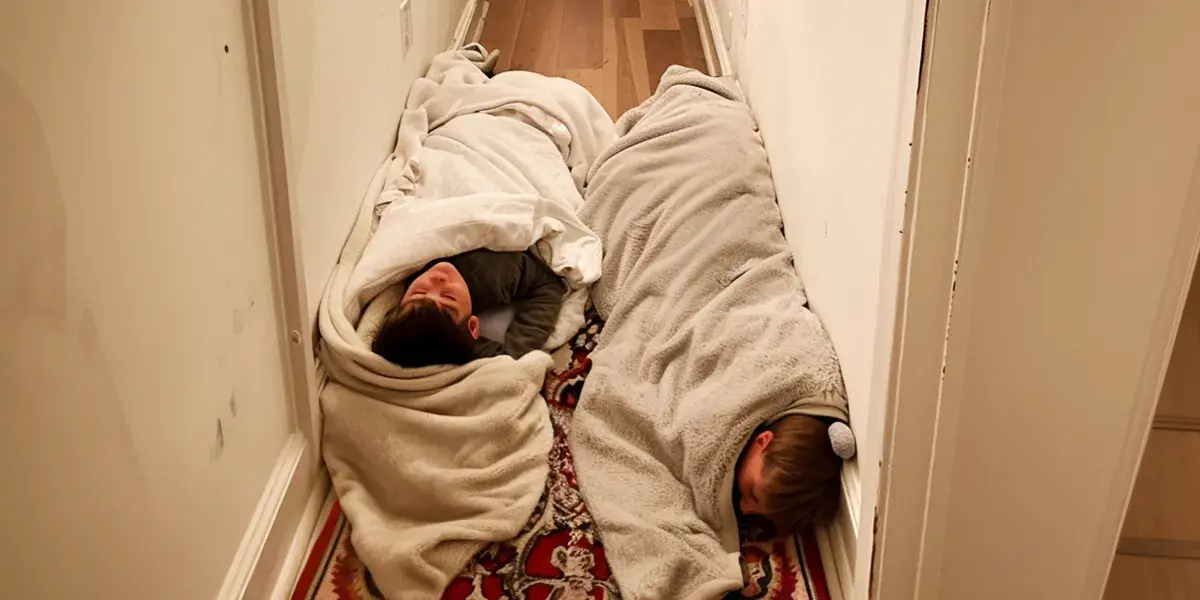
I Came Home to Find My Kids Sleeping in the Hallway — What My Husband Turned Their Bedroom into While I Was Away Made Me Feral

My Ex-MIL Demanded Receipts for Every Dollar of My Child Support Payments That I Spend

After his wife’s funeral, a father, devastated by grief, took his son to the sea to distract him.

Daddy, that waitress looks just like Mommy!” The words hit James Whitmore like a shockwave. He turned sharply—and froze. His wife had died.
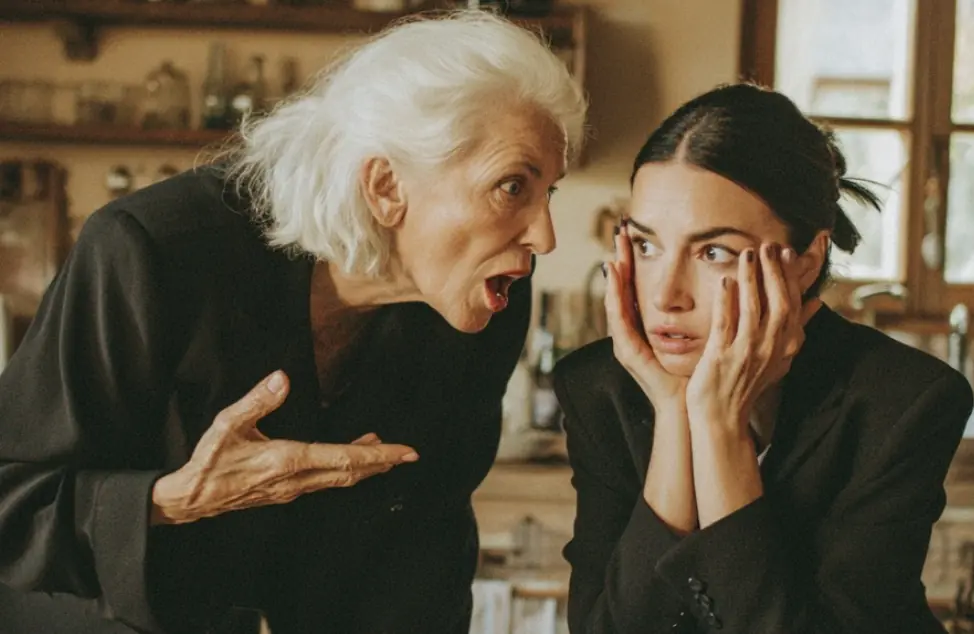
Swap apartments temporarily with my daughter! She just had a son!” — the mother-in-law “forgot” that temporarily means forever

After I Saw The Baby My Wife Gave Birth To, I Was Ready To Leave Her — But Then She Said, “There’s Something I Need To Tell You.”
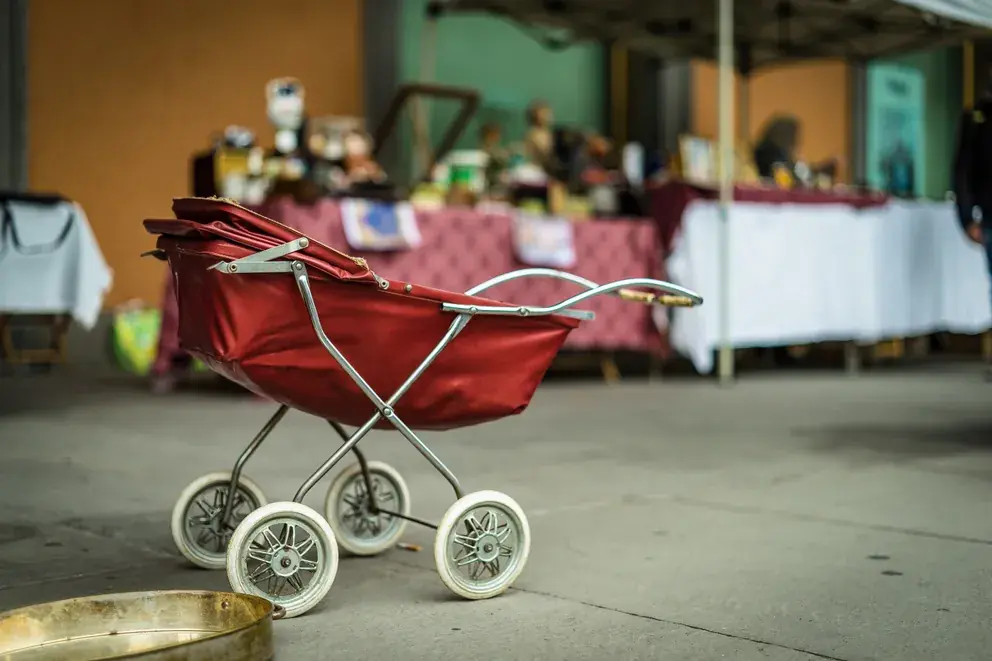
Mom Sells Old Stroller to Feed 4 Kids, Finds It on Her Doorstep the Next Day with Note Inside – Story of the Day
A pregnant mother of three needs to sell her stroller to feed her three children after she was abandoned by her husband.
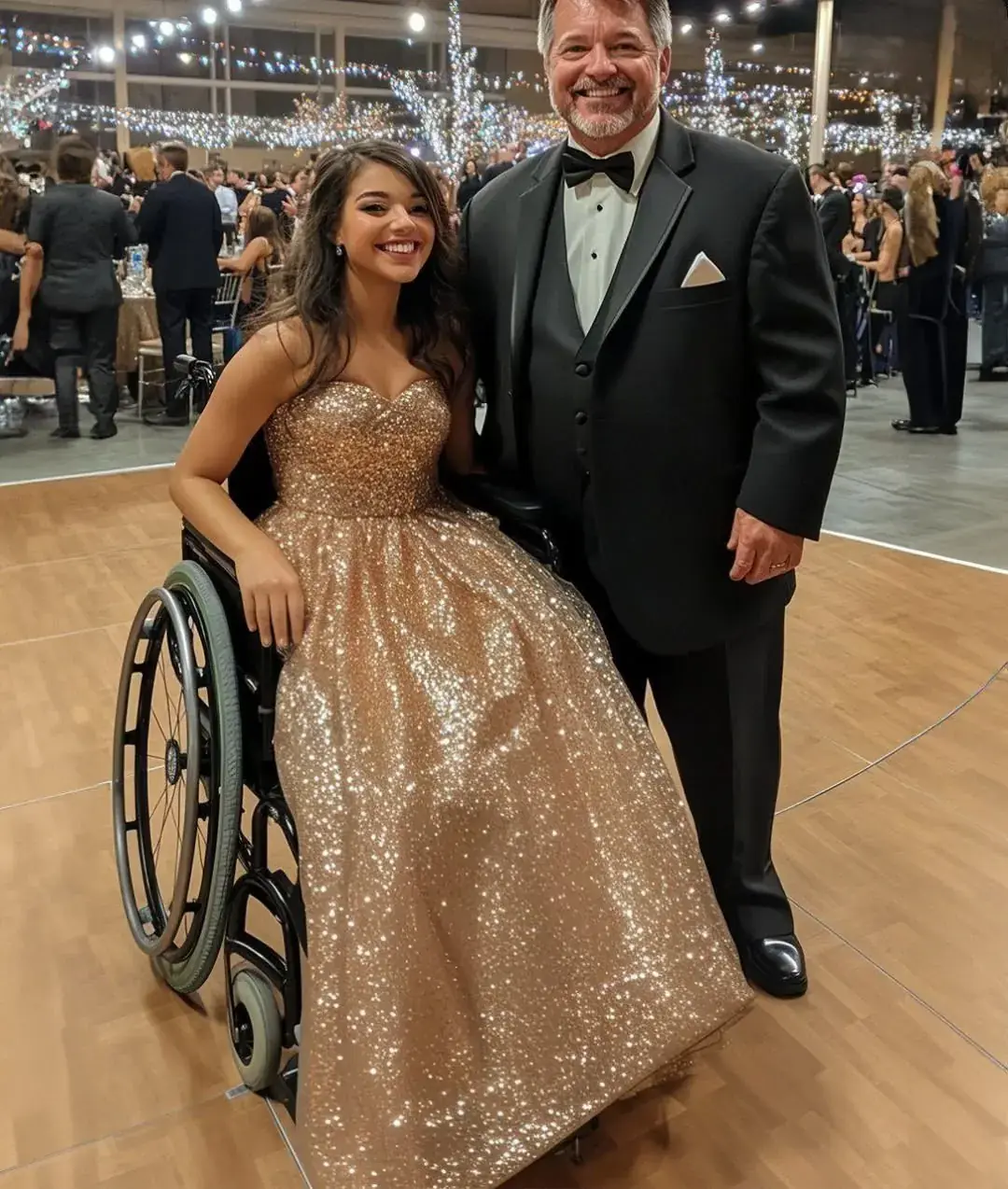
A Father’s Redemption: How One Dad’s Love Gave His Disabled Daughter a Future Beyond Her Dreams
Prom Night Miracle: Devoted Dad Takes Disabled Daughter to Prom—Then Finds a $10K ‘Dad of the Year’ Surprise!
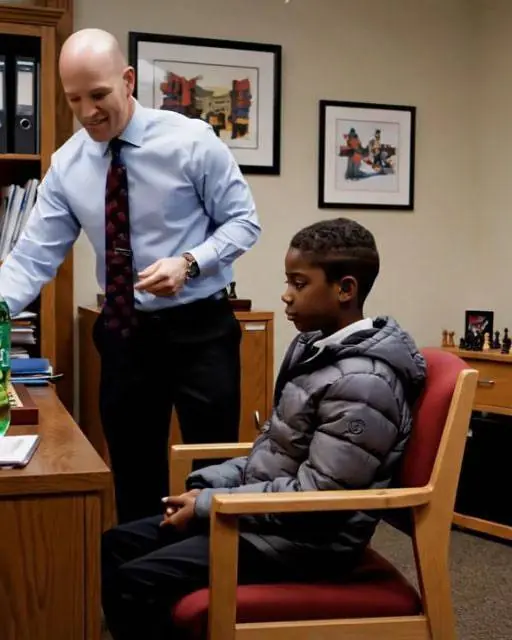
He Wouldn’t Take Off His Hat In Class—But When I Found Out Why, Everything Changed

THEY SAID I COULDN’T KEEP MY JOB AND RAISE HER—SO I TOOK HER ON THE ROAD

A Stranger Yelled At My Daughter In Public—So I Made Sure She Got What She Deserved

My Cousin Got A Job At My Ex’s Restaurant—And Then Sent Me A Photo Of What He Found In The Walk-In

THE SON OF WEALTHY PARENTS MARRIED A YOUNG WOMAN AND MOVED TO A REMOTE HOUSE – HIS PARENTS COULD HARDLY RECOGNIZE HIM AFTER SIX MONTHS
A terminally ill son of wealthy parents marries a young woman, and they move to a remote area. Six months later, his parents can't believe how different their son has become. Discover how love and a simpler life changed everything for Gennady and Lena.

From Betrayal to Hope: Meggie's Unlikely Journey of Healing and Love
A woman, abandoned by her husband, unexpectedly finds herself in a remote house, sharing space with a man bound to a wheelchair. Over time, they form an unlikely bond, overcoming hardship, loneliness, and self-doubt. Can love truly heal even the deepest

Since you left all the inheritance to my brother, I’m not going to pay your bills anymore!
In a life full of changes, Marina always believed that family was everything. However, when she unexpectedly discovered her parents' will, she realized that family bonds could sometimes be determined by numbers and paperwork. Faced with a deep rift with
News Post

How to Lower High Blood Pressure Quickly Without Medications (Evidence Based)

10 Surprising Benefits of Drinking Apple Cider Vinegar According to Science

Unlock Your Body's Healing Power: Just 9 Days of Less Sugar

Scientists just found a breast cancer-killing molecule in scorpion venom

‘Beloved’ lion is shot dead after being lured from reserve by trophy hunter in chilling $46k kill

Breakthrough male birth control pill just passed human safety testing

Elderly Woman Divorces Her Husband after 50 Years of Marriage, but She Later Regrets It – Story of the Day

Elon Musk uses single emoji to reveal if he thinks Trump will pardon Ghislaine Maxwell

I Met My Husband and His Mistress at a Public Pool – I Wanted to Teach Him a Lesson, but Karma Had Other Plans

A Week Ago, My House Was Robbed — Today, My Son (Who Doesn't Have a Job) Bought Himself a Sports Car

My MIL Gave My Husband Papers to Divorce Me as a Birthday Gift – What He Did Next Left Everyone Speechless

I Came Home to Find My Kids Sleeping in the Hallway — What My Husband Turned Their Bedroom into While I Was Away Made Me Feral

My Ex-MIL Demanded Receipts for Every Dollar of My Child Support Payments That I Spend

After his wife’s funeral, a father, devastated by grief, took his son to the sea to distract him.

Fake Honey Is Taking Over Store Shelves — Here’s How to Tell What’s Genuine

Daddy, that waitress looks just like Mommy!” The words hit James Whitmore like a shockwave. He turned sharply—and froze. His wife had died.

Experts claim mankind will die in world-ending ‘cosmic hell’ revealing the exact time the horrific event will occur

Swap apartments temporarily with my daughter! She just had a son!” — the mother-in-law “forgot” that temporarily means forever
